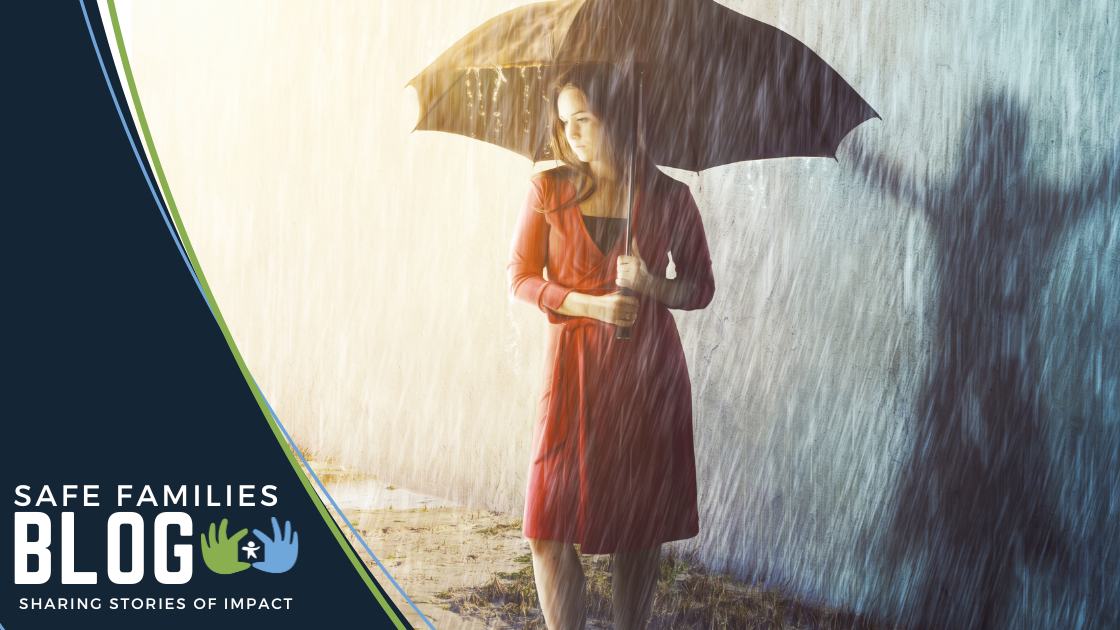by Julie Paine, MSW, LICSW, Strategic Growth and Impact for Safe Families National
Have you ever seen the movie The Perfect Storm? Based on a true story in my home state
Massachusetts, in the coastal fishing town of Gloucester, the film tells of the Perfect Storm
of 1991. In late October, a commercial fishing vessel named the Andrea Gail was confronted
by three raging weather fronts that collided to produce the “greatest, fiercest storm in modern
history.” All fishermen aboard were lost at sea, and Gloucester’s hardworking men and women,
many of whom risked their lives daily at sea, were devastated.
I believe many families in our country are currently experiencing a perfect storm – the forces of loneliness, parental stress, and family separation often due to poverty and limited access to resources. One of those fronts alone could send someone over the edge. Together, it is devastating. In May 2023, the U.S. Surgeon General issued a national advisory to sound the alarm about the “devastating impact of the epidemic of loneliness and isolation in the United States.” The loneliness epidemic started before the COVID-19 pandemic, with 1 in 5 Americans saying they rarely or never feel close to people.

I recently read The New York Times article referencing the 2024 American Capital Survey findings. The survey highlights that American social and civic life has declined considerably since the mid-20th century. The study also reports that America’s social and civic decline has not affected everyone equally. Access to education, time to spend in community activities, financial resources, and proximity to places to gather together make a big difference in people feeling connected to and cared for by others.
Interestingly, although it is declining, the community organizations with the highest percentage of people are still connected to religious institutions. Way too many parents and their children in our communities are feeling alone. And, the dramatic increase in people suffering from mental health challenges, especially youth, clearly demonstrates the impact of the silent killer – loneliness.
The second major force in this perfect storm is parental stress. A new report issued by the Surgeon General, called “Parents Under Pressure” notes 41% of parents and caregivers said they are “so stressed they cannot function” most days, and nearly 48% said their stress overwhelms them. This percentage is considerably higher than other adults. “When stress is severe or prolonged, it can have a harmful effect on the mental health of parents and caregivers, which in turn also affects the well-being of the children they raise.” Many of us who are parents know this truth all too personally. The ripple effect is very real. Research has also demonstrated this as we see the long-term mental and physical health impacts of ACEs (Adverse Childhood Experiences). The Surgeon General’s report highlights the different kinds of stress, complex stress, that parents are experiencing, such as “financial strain and economic instability, time demands, concerns about children’s health and safety, parental isolation, loneliness, difficulty managing technology and social media, and cultural pressures.” In addition to the everyday stressors listed above, mental health conditions disproportionately affect some parents and caregivers, including those facing circumstances like family or community violence, poverty, and racism and discrimination, among others.” The problem is so bad it has been declared a public health crisis.
The third force in this perfect storm is the child welfare crisis, with an overburdened foster care system (not enough foster parents to care for the number of children removed from their families). Tragically, over 70% of the children being removed from their families are not being removed for physical or sexual abuse, as many assume. They are removed for “neglect,” defined differently in states, with the risk of subjectivity and correlation to poverty. The trauma caused by a child being torn away from their family and home is significant. Removal is not in the long-term best interest of many children. Family support is a better alternative. The difference in parental and child well-being outcomes due to family separation and family support are night and day.
This perfect storm is wreaking havoc on families and communities across America. I imagine most of us feel the waves and know someone drowning in them. The good news is that we can do something to find, receive, or extend a lifebuoy, the kind we see at pools or on a boat. That life ring touches and surrounds us, holds us up, and keeps us safe. It is the connection with others.
I love the focus of Safe Families for Children because it is rooted in connection, the way God designed us to be in a relationship with Him and each other. Safe Families surrounds families facing a crisis with a compassionate, caring community that serves as a life ring of support. It brings families together with other families and volunteers who learn from each other and experience belonging. It supports parents in their pursuit of caring for their children and keeping children home safely with their families. Through Safe Families, parents report increases in social supports, connection to resources, and improved well-being. We CAN weather this perfect storm together and heal from its devastating impact. Still, it will require an all-hands-on-deck approach and following Jesus’ example, walking into the rough waters, caring deeply for each other, and surrounding each other with the support we all need.

